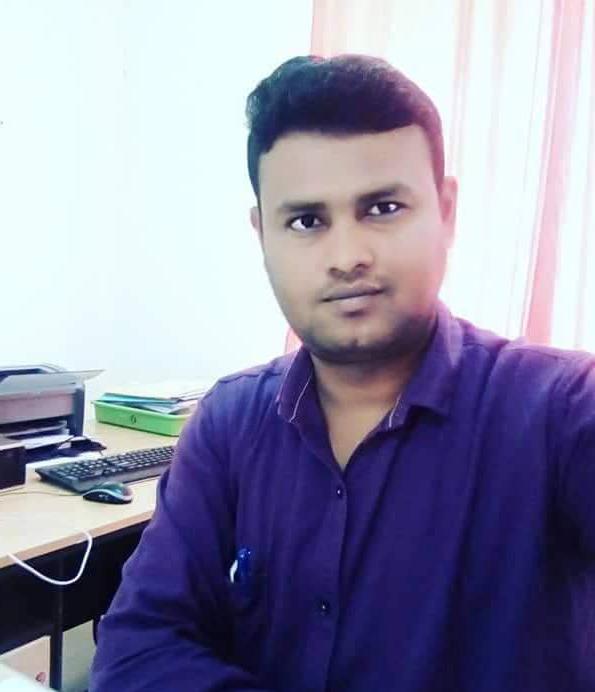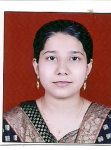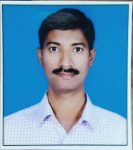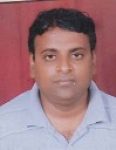COMPUTER ENGINEERING
HOD’s Desk

Shri. M.A. Dhaygude, Lect IT (I/c)
B.E. IT
Date of Appointment : 01-06-2019
Computer Engineering
PHOTO GALLERY
Vision
A center of excellence in the domain of Computer Science & Engineering to cultivate “digital artifacts” for society
Mission
To educate the globally competent Civil Engineering Diploma graduates through excellent education system for creating synergy for socio-economic development of nation, with focus on development of social values, human ethics, employment and self-employment spirit and lifelong learning skills.
People
Faculty

Shri. M.A. Dhaygude
Lectuer IT Head (I/c) (Regular)

Shri. P.B. Lahoti (Deputed MNIT, Jaipur under AICTE-QIP)
Lecturer (Regular)

Smt. N.M. Masuldar
Lecturer (Regular)

Shri. P.S. Hiwale
Lecturer (Regular)

Shri. S.M. Bankar
Lecturer (Regular)

Shri. V.B. Patil
Lecturer (Regular)
Staff
- PEO1:To provide the essential knowledge of science and engineering concepts fundamental for a computer professional and equip the proficiency of mathematical foundations and algorithmic principles for competent problem solving ability.
- PEO2:To design, model, program and test software systems and applications in varying domains including Networks, Embedded systems, Web technologies and Image processing.
- PEO3:To inculcate professional and ethical attitude, communication skills, teamwork, lifelong learning, multidisciplinary approach into student to relate computer engineering issues with social awareness.
1. Basic knowledge: An ability to apply basic knowledge of mathematics, science, and engineering as it applies to fundamentals of Information Technology and related programming technologies.
2. Discipline knowledge: An ability to apply knowledge of networking with wireless technologies, multimedia technology and distributed computing, software testing and topics of current relevance to IT industry.
3. Experiments and practice: An ability to interpret the knowledge of best practices of experiments in software development in industry.
4. Engineering tools: An ability to design, develop and evaluate acreative solutions for computer-based system, process, or program using techniques, skills and modern software engineering tools necessary for IT practice.
5. The engineer and society: An ability to comprehend of professional, legal, security, social issues and responsibilities.
6. Environment and sustainability: An ability to analyse the impact of engineering solutions in global, economic, environmental and societal context.
7. Ethics: An ability to inculcate professional and ethical responsibilities and marshal in all situations.
8. Individual and team work: An ability to function effectively in multidisciplinary environment as an individual and in team.
9. Communication: An ability to communicate technical topics in written and verbal forms effectively.
10. Life-long learning: An ability to apply knowledge & skills of computing discipline in the competitive examinations, higher education and / or seek employment to engage in life-long learning.
2. Discipline knowledge: An ability to apply knowledge of networking with wireless technologies, multimedia technology and distributed computing, software testing and topics of current relevance to IT industry.
3. Experiments and practice: An ability to interpret the knowledge of best practices of experiments in software development in industry.
4. Engineering tools: An ability to design, develop and evaluate acreative solutions for computer-based system, process, or program using techniques, skills and modern software engineering tools necessary for IT practice.
5. The engineer and society: An ability to comprehend of professional, legal, security, social issues and responsibilities.
6. Environment and sustainability: An ability to analyse the impact of engineering solutions in global, economic, environmental and societal context.
7. Ethics: An ability to inculcate professional and ethical responsibilities and marshal in all situations.
8. Individual and team work: An ability to function effectively in multidisciplinary environment as an individual and in team.
9. Communication: An ability to communicate technical topics in written and verbal forms effectively.
10. Life-long learning: An ability to apply knowledge & skills of computing discipline in the competitive examinations, higher education and / or seek employment to engage in life-long learning.
- Technical Support Analyst: Ability to use, analyse and develop computer programs in the areas related to algorithms, System and application software, multimedia technologies, web design, networking, troubleshooting & maintenance for efficient design of computer-based systems of varying complexity.
- Software Developer: Ability to apply standard practices and strategies in software project development using Free and open source software (FOSS) to deliver a quality product for business application
| Sr.No. | Name of Member | Designation | Experience | Organization |
|---|
| Sr. No. | Name of the Lab. | Name of Major Equipment’s | Available floor area (in sq.m) | Cost (in Rs.) | Remarks |
|---|
| Sr. No. | Year | Term | Name of Event (Awards/Achievements / IEDSSA/Paper/Quiz/Project etc) | Participant Name | Achievement |
|---|
